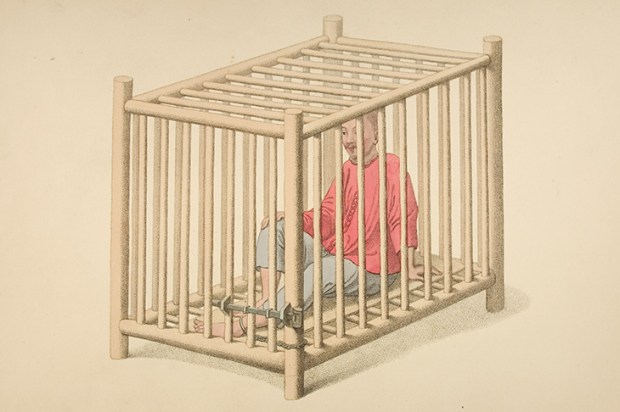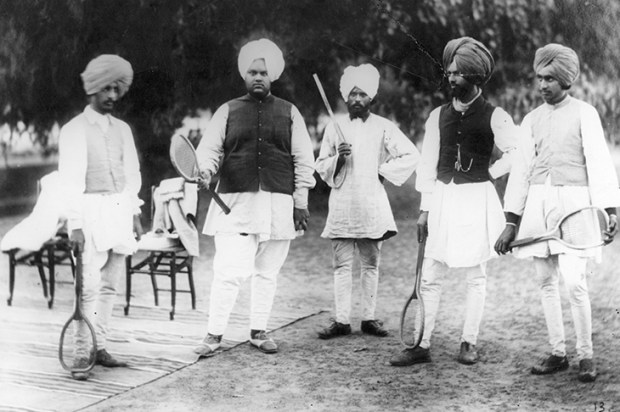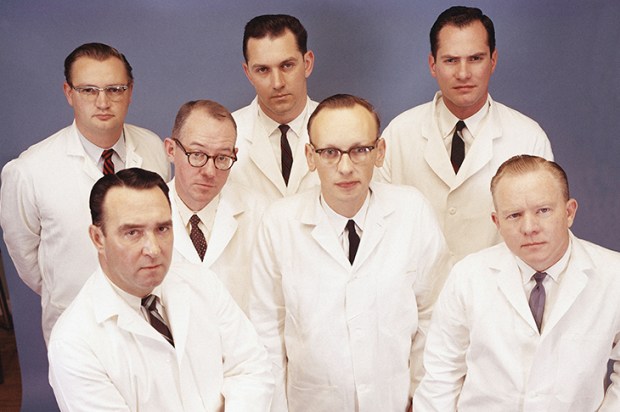The charity Oxfam has come under fire for issuing a bizarre ‘inclusive’ language guide to staff. The 92-page report warns against ‘colonial’ phrases such as ‘headquarters’, suggests ‘local’ may be offensive and says ‘people’ could be patriarchal. All the familiar rubbish was trotted out: ‘parent’ is preferable to ‘mother’ or ‘father’, and ‘people who become pregnant’ should be used instead of ‘expectant mothers’. The introduction apologises for being written in and about the English language, saying: ‘We recognise that this guide has its origin in English, the language of a colonising nation. We acknowledge the Anglo-supremacy of the sector as part of its coloniality.’ [Sadly ‘coloniality’ is a real word—it’s in the Oxford, recorded from 1862.] This absurd introduction goes on: ‘This guide aims to support people who have to work and communicate in the English language as part of this colonial legacy. However, we recognise that the dominance of English is one of the key issues that must be addressed in order to decolonise our ways of working and shift power.’ Oxfam was established in Oxford in 1842 for the purpose of relieving famine worldwide. They appear to have forgotten why they exist. This attempt to undermine the English language will not feed a single starving child in Africa. And they clearly don’t have the first clue as to how a language operates. What language does depends on how language is used. Any language, from Latin to Lithuanian, can be used to encourage and elevate people or to discourage and demean people. It is the users who do this, not the language. How any moderately intelligent person can fail to understand something as simple as this is just baffling.
I am told that a currently very popular sport on social media is something called ‘boomer bashing’. The ‘baby boomers’ were born between 1946 and 1964 – and they are the only generation that it makes some sense to think of as a generation, because all the population charts show a big upward curve, a boom, in the arrival of little babies, starting when the soldiers came home from the battlefields of the second world war and continuing into the early Sixties. But having named one generation the demographers decided they needed to name them all. So the next mob started out being called ‘baby busters’ but this didn’t catch on, so it was changed to Generation X (1965-1980); followed by the Millennials (1980-2000); which overlap with Gen Z (1995-2012) and so on. Most of this stuff is just made up. Apart, that is, from the boomers who are a real generation. And according to a report by Rory Gibson in the Sunday Telegraph there has been a flow of vitriol directed at the boomers from commentators who identify as being Millennials, Gen X and Gen Z. It seems this all sprang from the Albanese government deciding to fiddle with the rules around superannuation, and around franking credit concessions. Boomers –who worked hard for 30 or 40 years to build up a nest egg – have good reason to be concerned about these. The younger offspring are pushing back, accusing the boomer generation of whining. But those younger ones were brought up in relative comfort thanks to the boomers who built Australia’s post-war economy. So, instead of complaining, a vote of thanks to the boomers would be in order. At any rate, hence the trending expression: ‘boomer bashing’.
A Speccie reader has written to say that the plural of referendum is referenda, so, he asks: why do Australian commentators use ‘referendums’? The answer is because they are speaking English. The plural of ‘referendum’ is ‘referenda’ only in Latin. When English adopts or adapts a word from another language that word becomes part of English grammar and is construed as an English word. (And unless you’re wearing a toga don’t bother to write and complain!)
Got something to add? Join the discussion and comment below.
Contact Kel at ozwords.com.au
You might disagree with half of it, but you’ll enjoy reading all of it. Try your first month for free, then just $2 a week for the remainder of your first year.













